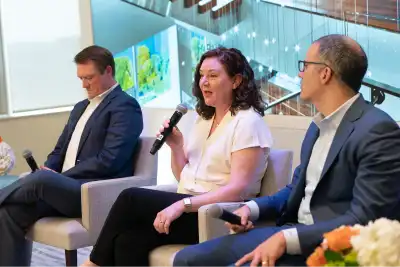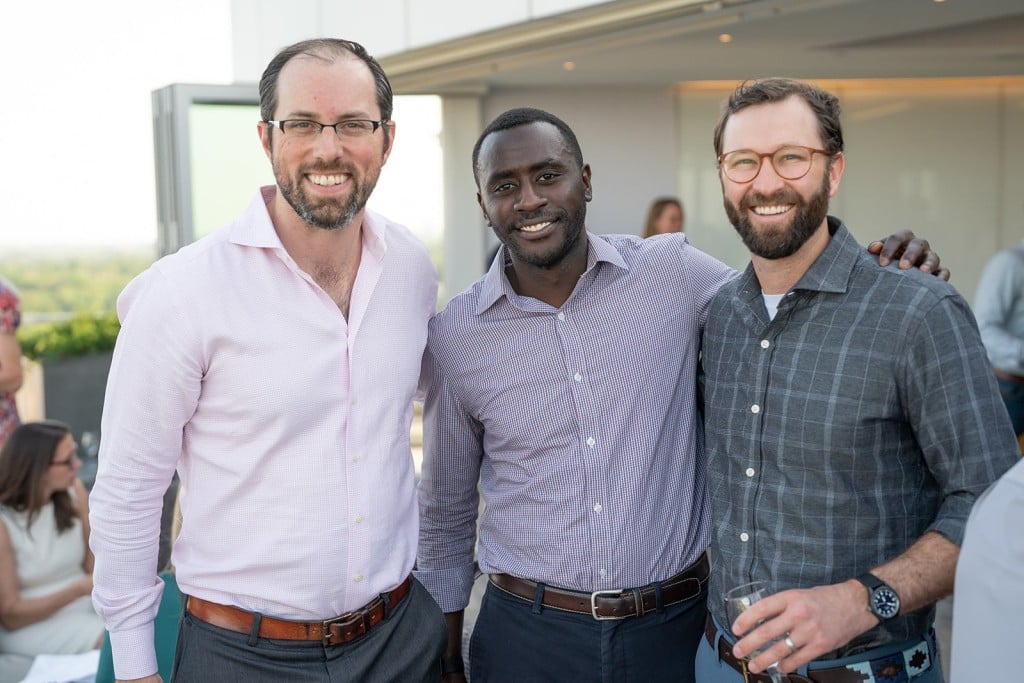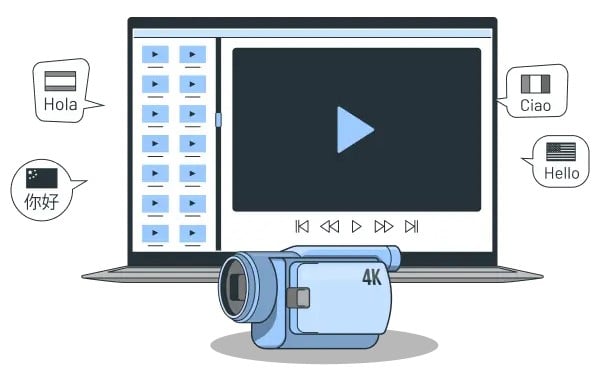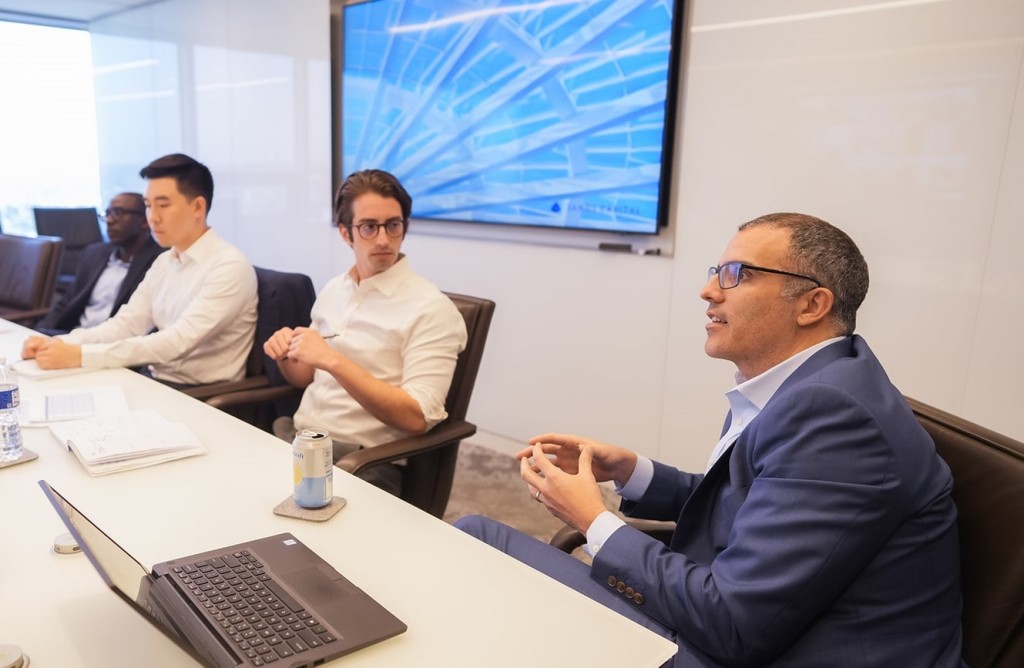Leveling the Playing Field
With the launch of its Square Reader, Block (formerly Square) gave small businesses an easy way to process credit card payments and manage their business. Now its Cash App gives young and low-income individuals a simplified way to spend, save, invest, send money, and access credit.
Contributors
June 2023
Block’s mission and the success of its products are fundamentally about enabling underserved populations to access the financial system. In doing so, it has become a champion for small businesses and young and low-income individuals through its now ubiquitous mobile merchant services device and its newer Cash App.
With the launch of its Square Reader, Block made it possible for anyone to accept card payments using a smartphone or tablet. Today, sellers use Block to reach buyers online and in person, manage their businesses, and access financing. Individuals use Cash App to spend, send, store, and invest money.
Block’s sustainability goals focus on “hyperlocal” community outreach, the small business community, and the next generation of technology. To formalize this framework, Block formed a Social Responsibility Committee in 2018. The committee presents itself as a learning resource for underserved communities by connecting them with local governments, small business groups, trade associations, and mentoring groups.
Block’s educational and training programs are geared toward small businesses with limited access to technology and/or those facing some knowledge gaps or language barriers to the financial system. Working with the U.S. Small Business Administration’s SCORE mentoring program, community development financial institutions, and the U.S. Chamber of Commerce, Block participates in workshops for small sellers on such topics as access to capital, ecommerce, and cash flow management.
In addition to providing merchant transaction processing, mobile payment, and other point-of-sale solutions, Block, through its Square Capital unit, has been moving into the small business lending arena with loan sizes averaging under $10,000. Loan repayment is facilitated seamlessly through the merchant transaction flow of the borrower. During the coronavirus pandemic, Block helped small businesses by offering loans under the U.S. federal government’s Paycheck Protection Program (PPP). When banks were overwhelmed by the surge of applications, nontraditional technology lenders, including Block, extended their services to fill the gap. The speed, scale, and differentiated borrower base of Block’s PPP program highlighted its ability to reach underserved populations.
As noted in the firm’s 2022 Corporate Social Responsibility Report, 56 percent of Block’s loans were extended to women-owned businesses.1 Further, 27 percent of Square Loan recipients identify as people of color.2
Block’s qualification process is based on payment and point-of-sale data, and customers use the funds to purchase equipment and inventory, hire employees, expand their retail footprint, and carry out other business activities. Loan repayment is automated as a fixed percentage of card transactions.
Block offers an easy-to-use, accessible, and transparent Cash App to individual clients. This app has become a meaningful portion of Block’s business and future growth potential. As of December 31, 2022, there were 51 million transacting activities on the app every month.3 By providing greater access to credit for previously underserved groups, the app could have an even greater societal impact than Block’s work with small businesses. Among other things, the Cash App offers fee-free deposit accounts with no minimum balance requirements, a debit card rewards program not tied to credit access or spending levels, and fractional-share stock investing.
With Block’s 2021 acquisition of Afterpay and its buy-now, pay-later (BNPL) option, Block enables consumers to pay for their purchases in installments. It thereby offers an alternative to using traditional credit cards to make purchases. This flexibility can drive more sales for businesses because they can serve customers who might not have all the cash they would need upfront to make purchases.
By offering access to capital, Block seeks to help its seller customers expand their businesses and individuals gain access to savings and credit. Block benefits as transaction levels increase. The Block point-of-sale device is a metaphor for the company’s business model and its related sustainable development goals: it is designed to provide easy access to the financial system and facilitate entrepreneurial growth with training programs. Its practices help small businesses and individuals who see the company as an easy vehicle for business expansion, economic growth, and financial success.
Sustainable Development Goals
The Sands Capital six investment criteria tend to lead us to businesses that are innovators or vital facilitators of change in industries undergoing significant transformation. Many of these businesses operate in high-impact spaces such as technology and life sciences.
Block is one of many portfolio businesses that create impact by addressing at least one major social and environmental challenge identified by the United Nations Sustainable Development Goals (SDGs). Block addresses SDG 4: Quality Education; SDG 8: Decent Work and Economic Growth; SDG 10: Reduced Inequalities; and SDG 11: Sustainable Cities and Communities.
1 “Block 2022 CSR Report,” (page 10)
2 “Block 2022 CSR Report,” (page 10)
3 “Block 2022 CSR Report,” (page 4)
Disclosures:
The business profiled was selected based on its reported alignment with one or more U.N. Sustainable Development Goals.
The views expressed are the opinion of Sands Capital and are not intended as a forecast, a guarantee of future results, investment recommendations, or an offer to buy or sell any securities. The views expressed were current as of the date indicated and are subject to change. Information contained herein may be based on, or derived from, information provided by third parties. The accuracy of such information has not been independently verified and cannot be guaranteed. The information in this document speaks as of the date of this document or such earlier date as set out herein or as the context may require and may be subject to updating, completion, revision and amendment. There will be no obligation to update any of the information or correct any inaccuracies contained herein. This material may contain forward-looking statements, which are subject to uncertainty and contingencies outside of Sands Capital’s control. Readers should not place undue reliance upon these forward-looking statements. There is no guarantee that Sands Capital will meet its stated goals. Past performance is not indicative of future results. All investments are subject to market risk, including the possible loss of principal. Differences in account size, timing of transactions, and market conditions prevailing at the time of investment may lead to different results, and clients may lose money. A company’s fundamentals or earnings growth is no guarantee that its share price will increase. The specific securities identified and described do not represent all of the securities purchased, sold, or recommended for advisory clients. There is no assurance that any security will continue to be owned by Sands Capital. You should not assume that any investment is or will be profitable.
This material is for informational purposes only and does not constitute an offer, invitation, or recommendation to buy, sell, subscribe for, or issue any securities. The material is based on information that we consider correct, and any estimates, opinions, conclusions, or recommendations contained in this communication are reasonably held or made at the time of compilation. However, no warranty is made as to the accuracy or reliability of any estimates, opinions, conclusions, or recommendations. It should not be construed as investment, legal, or tax advice and may not be reproduced or distributed to any person.
In the United Kingdom, this communication is issued by Sands Capital Advisors – UK Ltd (“Sands UK”) and approved by Robert Quinn Advisory LLP, which is authorised and regulated by the UK Financial Conduct Authority (“FCA”). Sands UK is an Appointed Representative of Robert Quinn Advisory LLP. This material constitutes a financial promotion for the purposes of the Financial Services and Markets Act 2000 (the “Act”) and the handbook of rules and guidance issued from time to time by the FCA (the “FCA Rules”). This material is for information purposes only and does not constitute an offer to subscribe for or purchase of any financial instrument. Sands UK neither provides investment advice to, nor receives and transmits orders from, persons to whom this material is communicated, nor does it carry on any other activities with or for such persons that constitute “MiFID or equivalent third country business” for the purposes of the FCA Rules. All information provided is not warranted as to completeness or accuracy and is subject to change without notice. This communication and any investment or service to which this material may relate is exclusively intended for persons who are Professional Clients or Eligible Counterparties for the purposes of the FCA Rules and other persons should not act or rely on it. This communication is not intended for use by any person or entity in any jurisdiction or country where such distribution or use would be contrary to local law or regulation.












